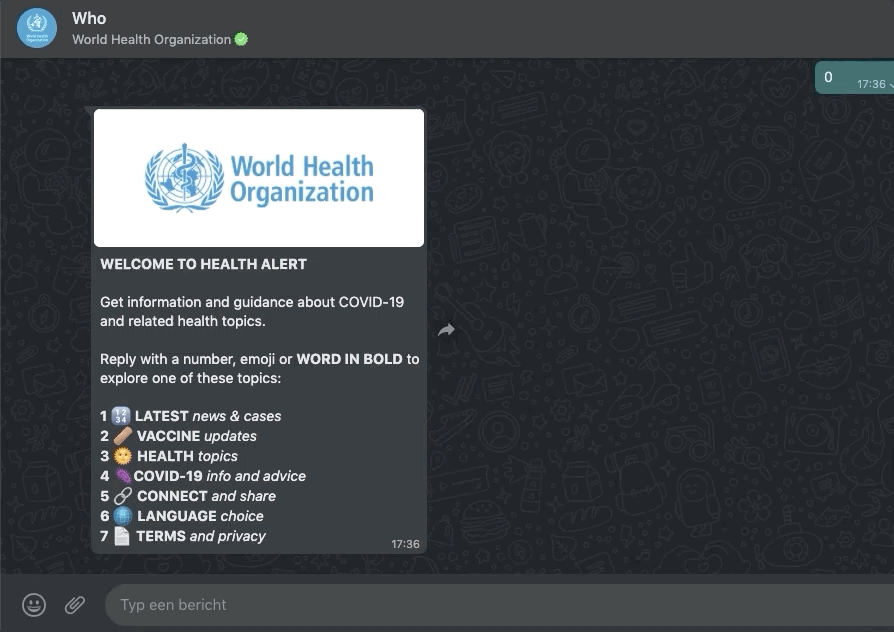How to tackle the challenges of using WhatsApp as a service channel
WhatsApp is frequently used by both young and old. This highly accessible messaging channel is being used more and more as a service channel. Organisations can answer their customer’s questions and residents can find municipalities through this popular channel. Smart organisations see the opportunities of WhatsApp and make use of the many possibilities this channel offers.
Of course, the adoption of WhatsApp as a customer contact channel also carries some challenges. What about the privacy issues regarding my customers or residents? Is the use of WhatsApp GDPR proof? And how do I meet new consumers’ expectations? In this blog, we will look at the challenges of WhatsApp as a service channel and tackle the pitfalls you’ve probably already seen.

Can WhatsApp read your customers’ messages?
WhatsApp has been in the news frequently because of questions surrounding its privacy policy. We can reassure you, WhatsApp calls and messages are protected by end-to-end encryption. This means that WhatsApp itself cannot access the content of your conversations, nor can it share your contact list. Conversations between you and the customer remain private.
Does the use of WhatsApp fall within GDPR legislation?
It’s not a problem to use WhatsApp as a service channel, as long as the messages are not stored longer than necessary and access to them is limited to those who need to do their jobs.
Within the all-in-one webcare (online customer support) solution OBI Engage, into which we can integrate the Whatsapp Business API, you can easily add and remove users as soon as these employees leave the organisation or change roles. In this way, you ensure that only employees with the right permission have access to the messages. You can also use this webcare solution to set how long the messages are stored. After this retention period, the messages are automatically deleted.
Is the informal nature of WhatsApp suitable for official business?
There is no denying it, WhatsApp has a very personal character. It is often used to enable communication between friends and family.
As an organisation, how do you handle the personal nature of the platform? You have to realise that the chats will be in between the customer’s personal conversations. People are used to the informal nature of WhatsApp and this will seep into conversations with your organisation. Therefore, make sure that you use WhatsApp for things that the channel is best suited for. For example, answering questions about a return, delivery time or product information.
Can municipalities and residents use WhatsApp as a service channel, worry-free?
For governments, WhatsApp has drawn up a number of rules. For example, WhatsApp may be used for crisis response, permits, appointments, municipal services and tourism. But other things like promotions, political campaigns, collecting data from voters and any kind of influencing of elections are not allowed on the platform.
Residents, by the way, need not worry about privacy-related issues when it comes to communicating with the government via WhatsApp. The Information Security Service (IBD) of VNG has conducted a study of the risks regarding the privacy aspects of the use of the WhatsApp Business Solution by municipalities for answering simple questions from residents. The study shows that the risks for the inhabitants concerned are negligible. Residents can therefore confidently communicate with the municipality via WhatsApp.
People expect quick answers via WhatsApp. How can you meet this expectation?
WhatsApp, as a messaging channel, is ideally suited for having conversations at a certain pace. Short questions and quick answers are the norm. How did this phenomenon come about? 12.4 million Dutch people have WhatsApp on their phones and for many, the phone is always within reach. Is your webcare department ready to handle a lot of questions in a short time? Because, for some organisations, this can be problematic.
A smart way to handle common questions and reduce the pressure on customer service is to use chatbots. These virtual agents can be integrated within your WhatsApp channel and address customers directly. By using a chatbot to handle common questions and do preliminary work, customer service agents have more time to focus on more complex questions. This not only improves customer satisfaction, but also employee satisfaction.
The World Health Organization has implemented a chatbot in their WhatsApp channel. WHO’s chatbot communicates in various languages and playfully conveys important information and news surrounding the corona virus, for example. By implementing this chatbot, WHO captures countless queries on a daily basis.
Getting started with WhatsApp as a service channel
Are you curious about the benefits of WhatsApp for your organisation? Read the blog about the benefits of WhatsApp as a service channel here. Do you foresee challenges regarding response time or privacy? Our experts will be happy to discuss the possibilities of the WhatsApp Business Solution for your organisation.
